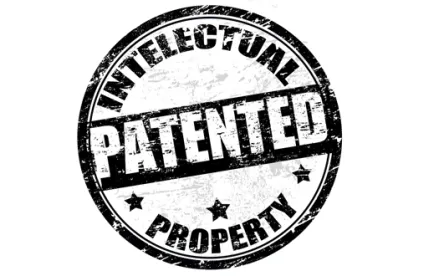On March 27, 2020, President Trump signed the Coronavirus Aid, Relief, and Economic Security (CARES) Act into law. The CARES Act is a $2 trillion economic stimulus and rescue package designed to mitigate the economic impact of the COVID-19 global pandemic caused by the novel coronavirus, which has resulted in a level of societal and economic disruption that is unprecedented in living memory. Included in the bill is a temporary authorization to the Director of the United States Patent and Trademark Office (USPTO) during the pandemic to toll, waive, adjust, or modify any timing deadline under the patent or trademark laws. While the USPTO Director has not pointed to any specific change that will be made under the new authorization, it is possible that at least some timing deadlines will be modified to accommodate hardships faced by stakeholders during this crisis.
Major aspects of the CARES Act concern cash payments to individual Americans, expansion of unemployment insurance, low-cost loans to affected small businesses, and bailouts to industries hardest hit by the pandemic such as the airline and hospitality industries. While intellectual property (IP) concerns are not central to the bill, there are important provisions relating to the USPTO and its operations during the pandemic, specifically as they relate to the timing of deadlines for submissions to the Office.
In particular, the CARES Act temporarily authorizes the Director of the USPTO – for the duration of what is referred to in the Act as the “emergency period” – to “toll, waive, adjust, or modify, any timing deadline established by title 35, United States Code, the Trademark Act, section 18 of the Leahy-Smith America Invents Act [referencing the nine-month timeframe for filing a post-grant review] … or regulations promulgated thereunder” if the Director determines that the emergency satisfies the following conditions:
-
materially affects the functioning of the Patent and Trademark Office;
-
prejudices the rights of applicants, registrants, patent owners, or others appearing before the Office; or
-
prevents applicants, registrants, patent owners, or others appearing before the Office from filing a document or fee with the Office.
The “emergency period” is defined as beginning on the date of enactment of the CARES Act, continuing through the duration of the emergency declared by the President on March 13, 2020 as a result of the COVID-19 outbreak (and any renewal thereof), and concluding 60 days later. Therefore, it does not appear that the Director will have authority to extend any deadlines that expired prior to enactment of the CARES Act. Further, the temporary authorization conferred on the Director sunsets two years after the date of enactment.
The Act also requires that the Director publicly publish a notice of any tolling, waiving, adjusting, or modifying of a timing deadline. Additionally, if any timing deadline is tolled, waived, adjusted, or modified and such a toll, waiver, adjustment, or modification is in effect for a consecutive or cumulative period exceeding 120 days, the Director is required to, within 20 days of the expiration of that 120 day period, to submit to Congress “a statement describing the action taken, relevant background, and rationale for the period of tolling, waiver, adjustment, or modification.”
While there is no specific indication at this time that Director Iancu will act on the temporary authorization conferred by the CARES Act, the USPTO has already classified the COVID-19 pandemic as an “extraordinary situation” for the purposes of waiving certain petition fees and other requirements. Accordingly, although the Act does not require any specific action to be taken, it is very possible that Director Iancu tolls, waives, adjusts, or modifies the timing of at least some statutory deadlines based on the temporary authority granted under the Act or delegates that authority to another entity such as the Patent Trial and Appeal Board (PTAB).
For example, timing deadlines for submission of various fees to the Office could be extended, particularly for small and micro entities who are expected to be hardest-hit by the economic downturn resulting from the pandemic. For instance, it is plausible that the deadlines to submit maintenance fees may be tolled or extended. This would allow smaller businesses such as start-ups, which are more vulnerable to the downturn, and thus, more likely to experience cash flow problems and layoffs, more time to make difficult decisions regarding which patents in their portfolio to renew or abandon. This could be particularly valuable with respect to the significantly more expensive maintenance fees that are due 7.5 and 11.5 years after patent grant.
In addition, patent or trademark prosecution deadlines, deadlines for filing non-provisional patent applications claiming priority to prior-filed applications, and the like could be tolled or extended. This would provide stakeholders, particularly small businesses, with more time to make what are likely to be difficult decisions regarding which innovations are worthy to continue trying to protect. In addition, work-from-home requirements and social distancing orders are likely to slow the speed of innovation by making collaboration, brainstorming, and experimentation more difficult. Accordingly, any extra time that becomes available for making tough decisions regarding how and where to trim IP portfolios or which concepts to pursue or not pursue for patent protection would be a welcome boon for all companies, from start-ups to large multi-nationals. One strategy companies can employ during this crisis is to increase their provisional application filings, particularly for early-phase concepts whose further development/progress may have been thwarted by the pandemic.
In summary, the CARES Act provides a mechanism during this crisis for the USPTO to address and accommodate the needs of stakeholders as they relate to the timing of deadlines before the Office. It remains to be seen, however, which types of deadlines will be changed and to what degree based on the temporary authorization conferred under the Act. Therefore, until the Director decides to act under the discretion afforded by the Act, registrants and patent owners should assume that statutory deadlines cannot be extended.




 />i
/>i

